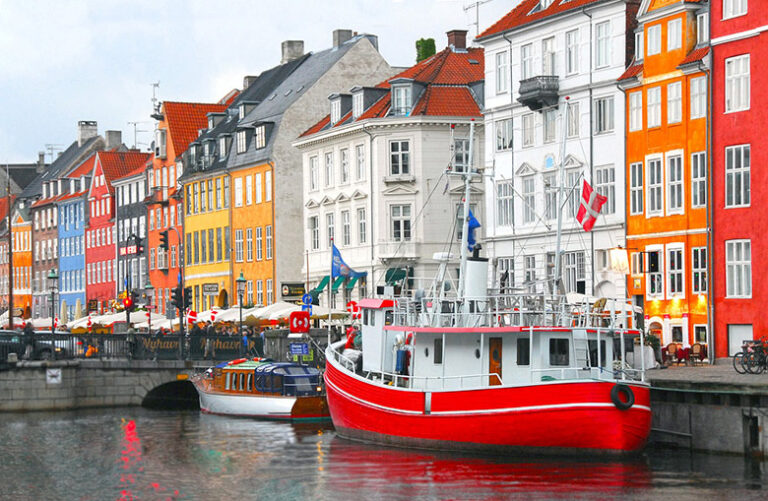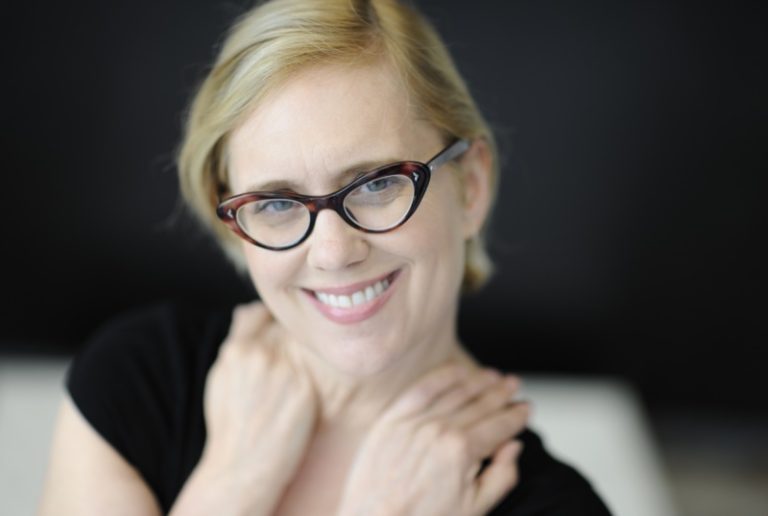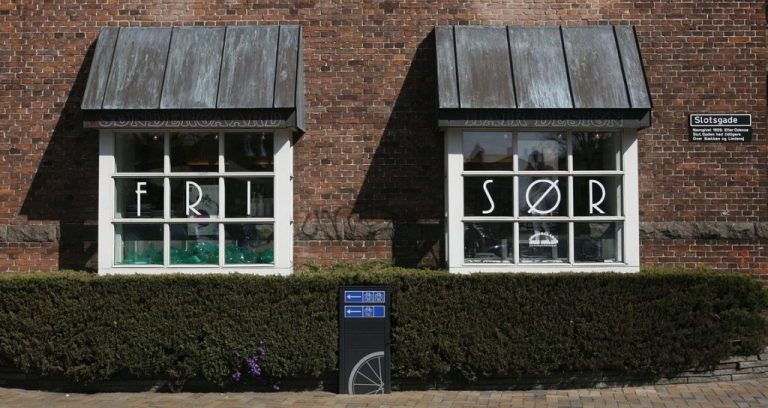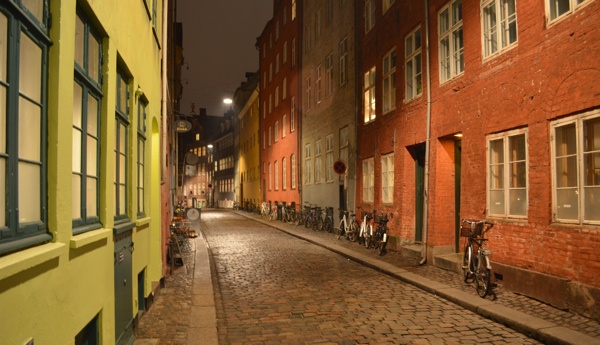Ever wondered whether the rest of Scandinavia is different from Norway? Let’s find out in this interview with an American expat who has found a happy life in Denmark.
Here in Scandinavia we are all one big happy family! I've visited Denmark a few times, specifically Copenhagen and Esbjerg, but I've often wondered what it's like to live in what is commonly believed to be the happiest country in the world.

To find out, I reached out to Kay Xander Mellish, the American behind the How to Live in Denmark blog, podcast, book and gameshow.
Where are you from, Kay?
I come from a small town in Wisconsin, which is a US state of 5.5m people, the exact same population of Denmark. Like Denmark, it has a major city Milwaukee, like Copenhagen, and a small academic city like Århus.
150 years ago Scandinavia was not a pageful place like it is today. Refugees came to Wisconsin, Minnesota and Iowa, anywhere with a similar climate where they could farm.
People don’t change very much over the years so there is still a strong Scandinavian culture in those states. Generally speaking, the people are honest, straightforward, hard-working, and there is an excellent education system.

Wisconsin had a strong union movement and never had the death penalty, so the Scandinavian influence is still there.
How did you end up in Denmark?
I left Wisconsin at 18 to study journalism and art history in New York. I couldn’t find a job, so ended up working in Berlin and Hong Kong as a journalist. I stayed in NYC for 10 years enjoying myself and then I was ready for something different.
Read more: Fun Facts About Denmark
I shopped around different American cities: Austin, Seattle, Chicago, Atlanta, but didn’t really find one quite right for me. On a vacation to Europe, I found Copenhagen. It was sophisticated without being intense.
Around that time the web was really taking off and as I'd been working as an online producer for ABC. an agency brought me over here.
But just five months later I was out of a job. I was in Denmark with all my furniture, didn’t speak Danish and didn’t know many people! I was unemployed for a year and not eligible for social benefits. I spent a year visiting every museum, learned Danish and found a job in Danske Bank, just in time.
If you can still remember, what were your first impressions?
It was a hard culture to arrive into. Like a tribe, Danes are people who’ve been here hundreds of years and have traditions that they don't even see as traditions.
A good example of what I mean is a story a Sri Lankan guy told me. One year his Danish friend told him to come by for an informal “jeans, t-shirts and beer” party for his 29th birthday.

He was invited again a year later but this time the entire family was there, aunts, uncles, all in suits and formal clothing with expensive gifts.
He didn’t understand that in Denmark “round” birthdays are important and therefore there was a big difference between a 29th and 30th birthday party. Danes don't even think to explain this because it is so ingrained in the society.
And these days?
Danes are more comfortable with people that are similar to them. In a recent chart of the top 100 young business talents in Denmark, 96 of them were ethnic Danes, 3 grew up in Denmark and only one came from abroad.
I feel you can come into Denmark as a foreigner but you can only reach a certain point. Carlsberg just brought in a Dutch CEO, so perhaps things are slowly changing.
Customer service is notably bad in Denmark, albeit with some slow improvements. When I first arrived the supermarkets always closed at around 1830 and at 1300 on Saturdays.
Even the hardware stores closed, so if you were doing some DIY on a Saturday lunchtime and found you were missing a screw, you had to wait until Monday. Even now pharmacies are still open 0930-1730.
In the USA, we do what can we do to keep the customer happy, whether through opening hours, returns policies or levels of service, but in Denmark the worker is more important than the customer. Denmark is a very equal society so there is not that tradition of service.

As expected, everything so far sounds very similar to Norway! Have you noticed any differences?
The landscape is so different! The landscape affects the way people see the world. It's said the Danish language is flat because it mimics the flat surroundings, whereas the opposite is true in Norway.
Read more: Denmark v Norway: Two Scandinavian Countries Compared
I think the landscape means Norwegians are more colourful in many ways. The language has more energy to it, and as a people they are more in touch with nature.
On that topic, how easy or hard was it to learn Danish?
It's similar to Norwegian but pronunciation is much more difficult. I do think you have to be born here to have the pronunciation perfect. I'm at the point where I can hold my own at both business meetings and social situations in Danish, and I'm happy with that.
Basically because of the comprehension of English here, you have to put yourself into a situation where you are forced to speak Danish.
I tell a lot of people to get a job in the daycare system as that helps immensely with language, because you are speaking at a basic level with children who are still developing their own language skills.
Everyone has a different learning style. I don't do well in a classroom situation so I have a private tutor. There's plenty of students that will do that for not very much money.
How are relations with Sweden?
Sweden is fascinating because of the Copenhagen to Malmö link. Immediately off the train you can see that Sweden had a car industry and Denmark didn’t.
The streets are much wider for cars, whereas in Denmark it's common for CEOs to cycle to work. A lot of Swedes come to Copenhagen to work because the unemployment rate is higher in Sweden.
Going back to the earlier question, that's made a huge difference to the levels of service here.
What keeps you in Denmark?
My network is here now and it's a nice place to raise children. In the US there is too much pressure on children to achieve too early.
There's too much testing and too much pressure on getting into colleges. The Danish system focuses on holistic knowledge, which I really like.
There is more time here, people are not as stressed. You don’t buy as much stuff because you don’t have as much money. People have fewer things but better things, and most importantly, more time for family and friends.
How do you find the business culture in Denmark?
In general Danes are extremely competent and I rarely meet someone who cannot do their job well. They arrive quite early in the morning, take a short lunch, focus on their job and then go home to focus on their private life.

You don’t see much of that in the USA or even the UK. Here in Denmark, you would never call your boss out-of-hours unless it was an emergency. Danes are extremely productive when there are at work, but of course whole departments are gone by 5pm.
I do find that gender equality is not what I expected here. We have a female political elite but most of the leaders are men in the private sector. If there's a woman on the board they are usually HR or communications.
As a fellow expat blogger I must ask you this. Why the blog, podcast and live events?
What came first were the essays about living in Denmark, which got really popular.
As I do voiceovers professionally, I started the podcast as it was a good way to practice. The podcasts turned into the book, and then I began to get calls from people about doing presentations.
Danes love to hear about themselves from outsiders, and I get a lot of comments from foreigners along the lines of “I thought it was only me!”
The whole experience gives me a lot of faith in a future multicultural Denmark. It is important in a multicultural world that people learn how to understand each other beyond language.
One of the most interesting things I've done is Chinese and Arabic versions of the book. We have a lot of Chinese students here and although they read in English, they send the book back to their families in China. We are working with the Red Cross to give out the Arabic version to new arrivals.
It's so easy to get to Copenhagen from Norway. What are the must-dos?
First of all I would go on one of the flat boats around Copenhagen harbour. It's a water city so you see it from that perspective and it allows you to check off the bit hits like the Lille Mermaid while you are on the boat.
Walk down Strædet and from the round tower you get an overview of all the spires in Copenhagen. After that, I'd say it depends on your interests. If you have a few days to spare then the Louisiana Museum of Modern Art is a worthwhile visit.
Somewhere I always send people to is Cafe Hovedtelegrafen above the Central Post Museum. It offers really tasty Danish food. It's a little expensive but perhaps not so much for Norwegians!
You can find out more about Kay and her work at How to Live in Denmark.





so good Dear Xander
So May you help me to live in Denmark?